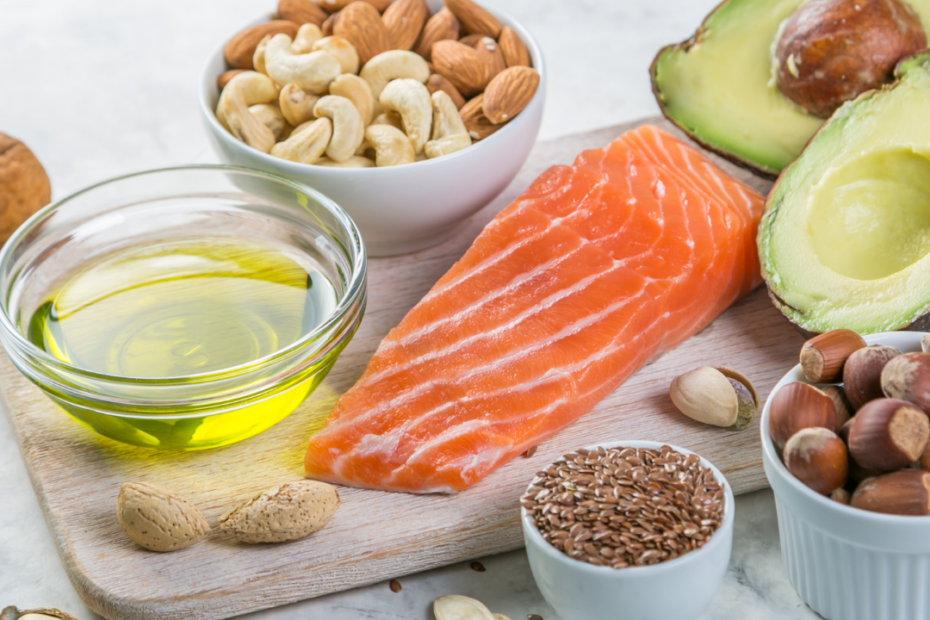The US dietary guidelines in the 90’s suggested that people avoid fat and get the majority of their calories from bread, rice, and grains. You may remember the food pyramid and the low-fat craze that followed, leading people to ban avocados, salmon, and nuts. Since then, obesity in the US has skyrocketed to 42% of the population. So, what happened?
It may make intuitive sense that eating fat would make you fat, but in reality, dietary fat and body fat are not equivalent. Your body accumulates fat to store energy, regardless of which food source the energy comes from. Meaning that excess calories lead to excess fat, not the excess of one particular macronutrient.
In fact, dietary fat is essential. Deficiencies in certain fatty acids have been linked to cognitive disorders like depression, anxiety, and schizophrenia, as well as poor immunity. Dietary fat is also required for the absorption of vitamins A, D, E, and K, which impact bones, teeth, hair, skin, and sight, and may be why very low fat diets are linked to heart disease and premature death.
That said, at 9 calories per gram (compared to 4 cal/g for carbs and protein), dietary fat can quickly lead to excessive calories, and therefore body fat. Low-fat options may still be the right choice if you’re looking to limit calories or eat smaller portions. The issue arises when we avoid fats by turning to refined carbohydrates and added sugars instead, which are linked to obesity. Carbohydrates are an efficient source of energy because they can be quickly metabolized into glucose and become available to muscle tissue faster than other macronutrients. Often, we aren’t active enough when this glucose spike happens, so our body diverts the unneeded energy into fat storage for later, which becomes problematic when repeated daily. Fats, complex carbs, and whole foods take much longer to digest and provide a steadier supply of energy.
So, what should you eat? The idea is to find the right balance of fat and carbohydrates for your goals. Those eating refined grains are at higher risk for weight gain than their peers consuming whole grains, so choose whole grain and fiber rich foods. Today, a popular diet is low-carb and high-fat, essentially the opposite of 90’s trends. However, when calories are controlled, there is no weight loss benefit from eating low-carb. In fact, low-carb and low-fat diets yield about the same amount of weight loss. Worry less about which macronutrient to eliminate and more about including both complex carbohydrates and high-quality fats.
According to the Harvard school of public health, a good rule of thumb is that unsaturated fats from plant sources are the best, saturated animal fats should be consumed in moderation, and trans fats should always be avoided. Omega 3 and omega 6 fatty acids are also crucial to a balanced diet because they can’t be synthesized in the body, but they must be consumed in the right ratio: about 1:1. Today, people often consume omega 3s and 6s in a ratio of 1:16, which drives inflammation, a precursor for many chronic health conditions. These excess omega 6s and trans fats are often found in fried foods and processed baked goods. Good sources of omega 3s include fatty fish, nuts and seeds, and plant oils.
Unsurprisingly, the key to maintaining a healthy weight comes down to eating whole, unprocessed foods and maintaining an active lifestyle. Also, don’t forget that consistency is key. Consider working with a dietitian to find the eating plan that works for your lifestyle, and email nutrition@waverleyoaks.com to learn more!
Content submitted by Lucy Bergeron, Nutrition Intern, and Jessica Roy, MS, RD, LDN, Registered Dietitian & Nutrition Counselor
